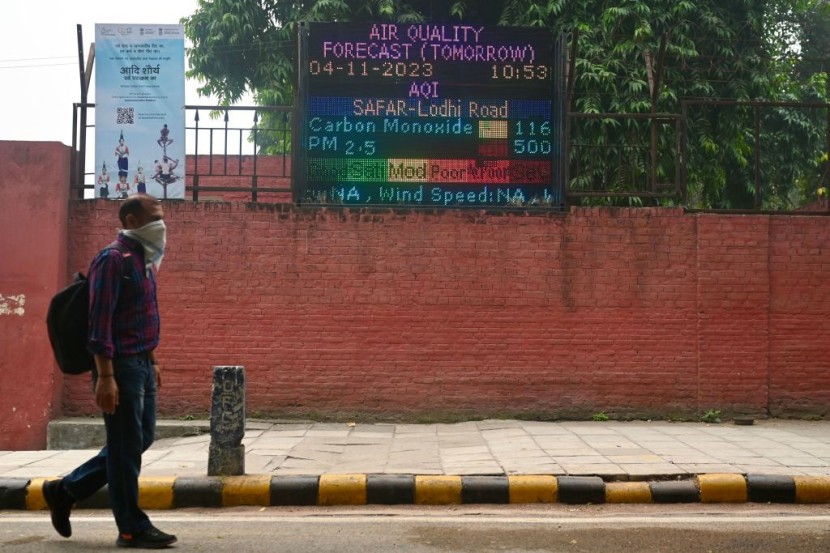Air quality in the city dropped to severe levels for the first time this season on Thursday, marking a grim reality for the residents of Delhi.
The situation is expected to deteriorate further in the next two weeks, raising serious concerns about the health and well-being of the city's 33 million inhabitants, as per BBC News.
Delhi's Alarming Air Pollution Crisis Spurs Emergency Measures

Scientists warn that Delhi's air pollution crisis has reached an alarming level, and the city's environment minister has called an emergency meeting to address this escalating issue. Delhi's ongoing struggle with severe air pollution has earned it the unenviable title of one of the world's most polluted cities.
On that fateful Thursday, schools were promptly shut down, and non-essential construction was banned as the air quality index in the city soared to nearly 500, which is a staggering 100 times higher than the limit deemed healthy by the World Health Organization.
The immediate cause of the deteriorating air quality can be traced back to the agricultural practices in the neighboring states of Haryana and Punjab. Farmers in these regions burn their fields during the crop planting season, releasing a dense cloud of pollutants into the atmosphere.
Unfavorable wind patterns have been carrying these pollutants into Delhi, and a temperature drop has trapped these hazardous particles, further exacerbating the problem. Punjab, in particular, witnessed a shocking 740% increase in farm fires on a single day, contributing significantly to the ongoing crisis.
However, it's essential to recognize that Delhi's air quality issues are not limited to just one source of pollution. Car emissions, construction activities, and the burning of waste in disposal plants all play a significant role in making the air quality deteriorate.
The consequences of this prolonged exposure to poor air quality are dire, according to The Guardian.
Read Also : US Dismisses Putin's Claim That Ukraine, West Organized Anti-Israel Riot at Dagestan Region
Delhi's Looming Air Quality Threat
According to this year's air quality life index compiled by the University of Chicago's Energy Policy Institute, the residents of Delhi may have their lives shortened by 11.9 years due to the toxic air they breathe. This alarming statistic underscores the urgent need for comprehensive and effective measures to combat the air pollution crisis.
Medical professionals in Delhi have reported a surge in patients suffering from respiratory problems, including coughs, colds, watery and irritated eyes, and breathing difficulties. These health issues affect people of all ages and serve as a stark reminder of the severity of the situation.
"It is time for us to wear masks and go out only when needed," warns Dr. Nikhil Modi from Apollo Hospital in Delhi.
The Delhi government, led by the Aam Aadmi Party (AAP), has introduced various strategies to combat pollution, such as sprinkling water on roads to reduce dust and constructing two 80-foot high "smog towers" costing over $2 million each.
However, these efforts have been criticized by scientists as largely ineffective in curbing the deteriorating air quality. The ongoing crisis isn't unique to Delhi, as the entire National Capital Region (NCR) finds itself engulfed in dense smog, raising concerns about the health and safety of its residents.
The Air Quality Index (AQI) in Delhi NCR has progressively worsened, reaching hazardous levels primarily due to vehicular emissions, industrial pollution, crop burning in neighboring states, and unfavorable meteorological conditions.
The hazardous air quality has reduced visibility and led to respiratory problems among the region's inhabitants, with a particular impact on individuals with pre-existing respiratory conditions, the elderly, and children.
In response to the smog, the Delhi government has announced the temporary closure of government and private primary schools on the 3rd and 4th of November, prioritizing the health of its citizens, Times of India reported.
© 2026 HNGN, All rights reserved. Do not reproduce without permission.








